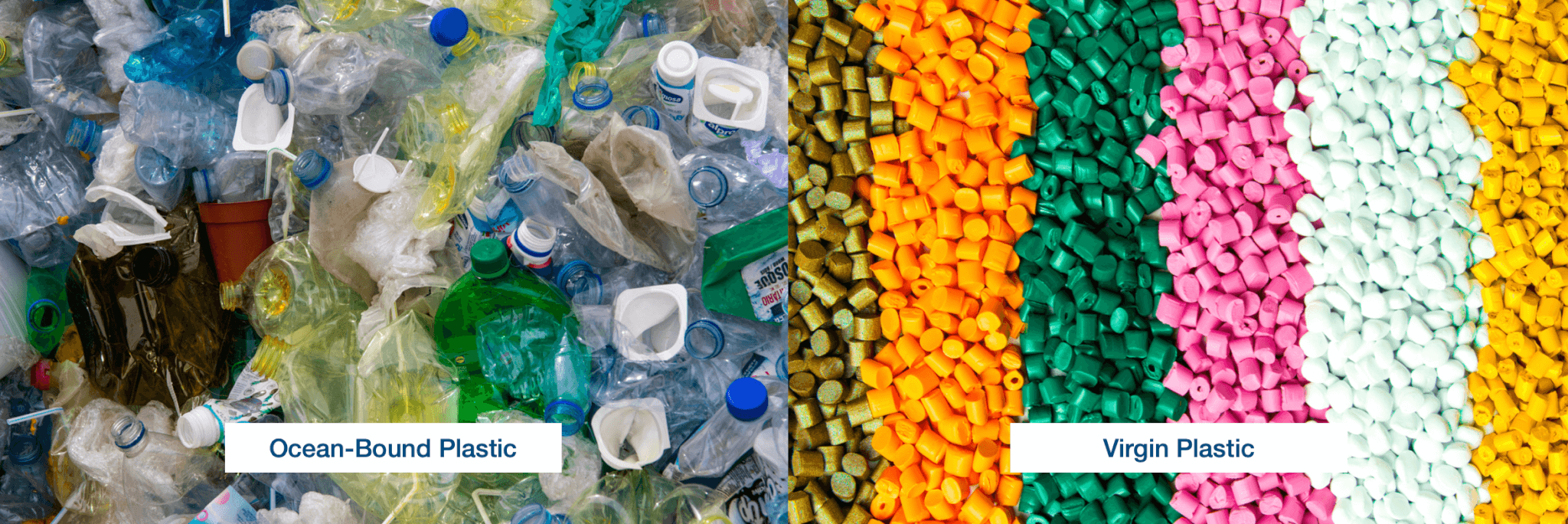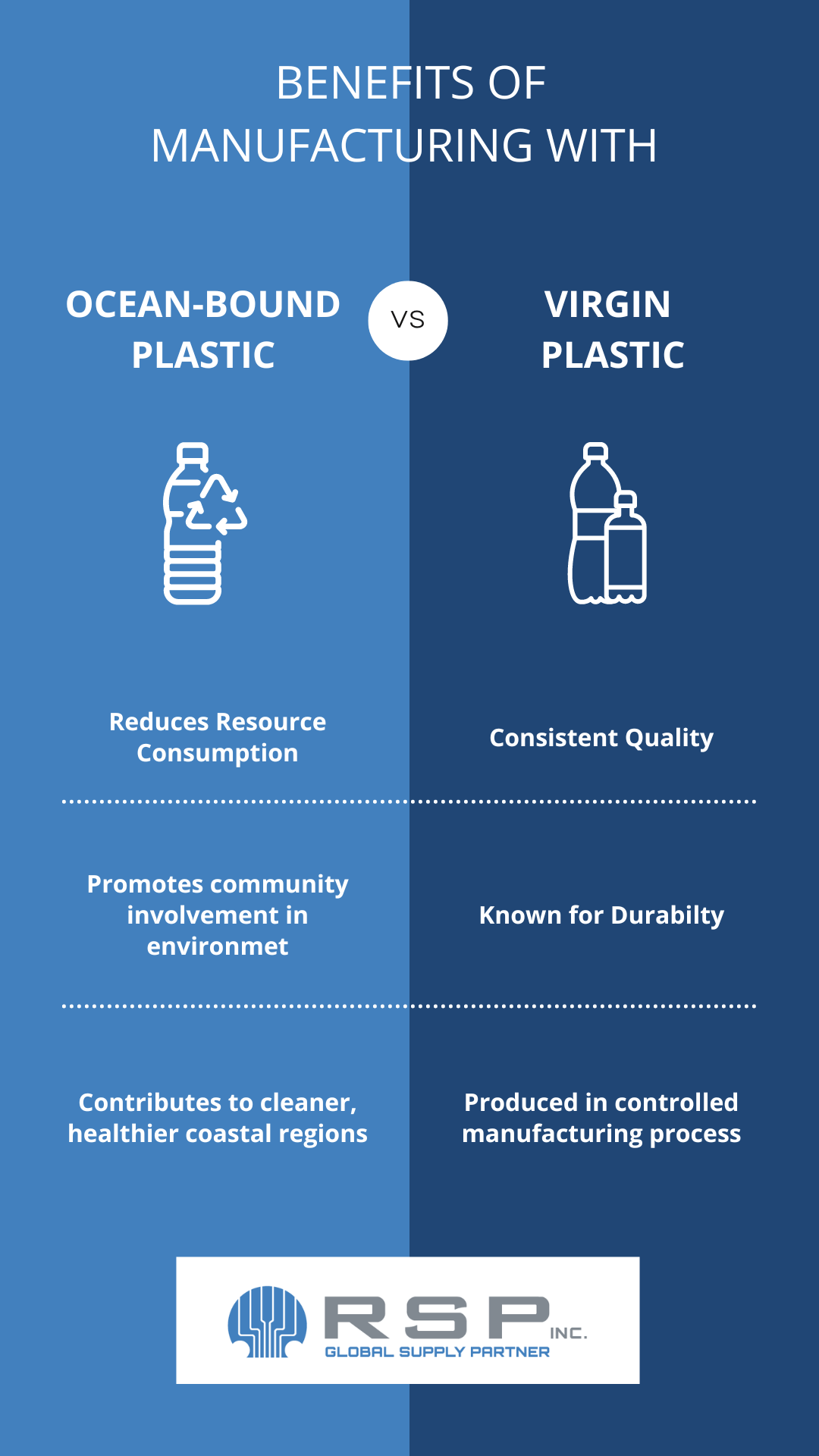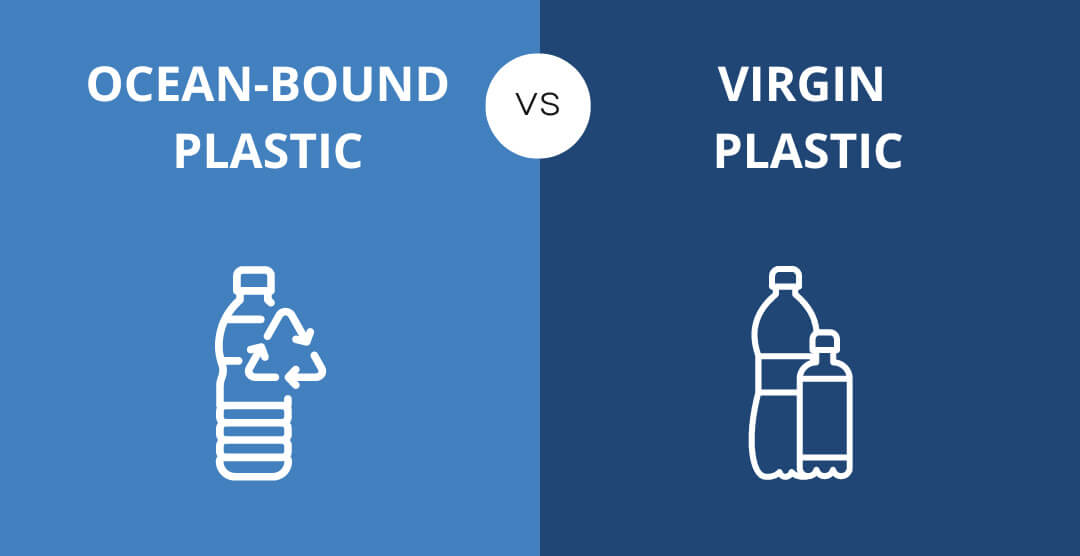Since the invention of fully synthetic material in the early 1900s, plastic has become an indispensable part of our daily lives. Still, its environmental impact has many consumers – and the businesses that serve them – searching for alternatives. However, plastic is uniquely durable and versatile, so it remains the material of choice for many applications and industries, including food and beverage, medical and others.
Today, manufacturers can choose between more sustainable options, such as reclaimed ocean-bound plastics, virgin plastic material, polymers with natural additives like hemp or some mix of these materials.
So what are the differences between ocean-bound plastic and virgin plastic? Read on to learn more about each material’s source, production process, environmental implications, and potential benefits.

Sources of Ocean-Bound Plastic vs. Virgin Plastic Material
Ocean-bound plastic refers to plastic waste that is at risk of entering the ocean and is collected from coastal areas, riverbanks and other regions. For example, RSP sources plastic from our trusted partners, such as Oceanworks®, that track and trace the material throughout its journey. Our ocean-bound plastic partners sort, clean and process these materials for reuse, such as for injection molding into new products.
Virgin plastic material, on the other hand, is produced from nonrecycled, raw materials, such as crude oil or natural gas. It undergoes extensive refining and processing before being manufactured into products for the food and beverage, cosmetics and medical industries, among many others. Virgin plastic is widely used across industries that require specific tolerances and properties due to its versatility and consistency.
Differences Between Ocean-Bound and Virgin Plastic
Environmental Impact
The environmental impact of ocean-bound plastic and virgin plastic is the starkest difference between the two materials. While any plastic material, if not properly recycled, can make its way to oceans and waterways, reclaiming ocean-bound plastic is one way to offset the environmental impact.
Using ocean-bound material to manufacture new products helps reduce the resource consumption, energy usage and greenhouse gas emissions associated with virgin plastic production, not to mention mining and extraction of raw materials needed to produce virgin plastic in the first place. Utilizing ocean-bound plastic also aids in raising awareness about the importance of recycling and responsible waste management practices.
Quality and Consistency
Virgin plastic is known for its consistent quality, and despite its reputation for single-use products, some materials, such as PET, are quite durable. The final product’s characteristics can be precisely engineered as it is produced from controlled manufacturing processes.
On the other hand, ocean-bound plastic may have variations in quality and properties due to the diverse sources and types of plastic waste collected. However, because RSP’s partners carefully sort and process ocean-bound plastic material, many of these manufacturing variables are mitigated, leading to better outcomes than ever with reclaimed plastics.
Social Impact
The collection and recycling of ocean-bound plastic can have positive social implications. It creates employment opportunities in waste management, promotes community involvement in environmental initiatives and contributes to cleaner, healthier coastal regions. While driving manufacturing activity, virgin plastic production may not offer the same localized benefits as ocean-bound plastic initiatives.

How to Choose a Material for Your Product
Today, companies have more options for plastic materials than ever before. Even more important is choosing the right manufacturing partner. When you choose RSP, you leverage our expertise in working with various materials, from virgin plastic to reclaimed ocean-bound plastic and everything in between.
As a proven industry leader constantly experimenting with and exploring sustainable materials to serve our customers better, RSP can help you bring your ideas to life. Whether you need a prototype or a full-service turnkey contract manufacturer with decades of experience in plastic injection molding, RSP can help you choose the suitable material for your product. Contact us today to learn more about our services, and get started on bringing your product to market.

